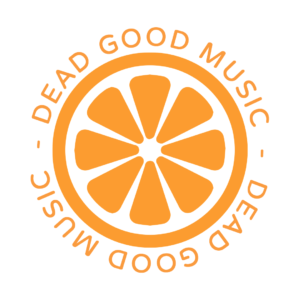Pure Heroine arrived less than a year after Lorde’s debut EP, The Love Club was first made available for free on Soundcloud and, with its release, the 16-year-old singer completed her transformation from bored teenager to pop-defining global superstar.
The story of pop music can often be viewed as one of change and, back in 2013, its framework was once again morphing into something new. The seeds of the transformation had arguably been planted by Lana Del Rey’s 2012 album, Born To Die, which offered a more minimalist and lyrically developed alternative to the lavish overproduction that plagued the charts at the time. The stage was set for an artist to take the mantle of pop music’s heroine…enter, Lorde.
The New Zealand-born singer – whose real name is Ella Yelich-O’Connor – was already riding a tidal wave of hype by she came to release her debut LP; her single ‘Royals’ had shot through the world’s singles charts and captured the attention of millions worldwide. The track forms the centrepiece of the record, which circles around themes of teenage angst, loneliness and heartbreak.
The record was produced by Joel Little, who ensured that minimalism remained the key to the album’s overall production. Displaying similar sounds to an XX record, Lorde’s dark and misty vocal is at the very centre of the record’s sound. The dry whisper of her voice is intimate, knowing and harsh and, perhaps most importantly, makes no effort to appeal to mainstream tastes. The intimacy of her voice is amplified on a number of tracks: ‘Ribs’, ‘White Teeth’ and ‘Still Sane’ all make use of layering their vocals to give them an almost palpable texture which, when coupled with the anecdotal nature of the tracks’ lyricism, allows an atmosphere of closeness to take shape.
While vocal harmonies account for the vast majority of the album’s consistency, synths form the bedrock of the record’s instrumentation; pulsating kick drum beats give tracks like ‘Tennis Court’ and ‘Team’ their groove, the latter of which is the closest thing the record has to a contemporary pop song. The addition of drums add both a danceability and a layer of musical complexity to the record’s mystifying atmosphere; the instrumentation remains ultimately restrained throughout the album and, although the resulting sparseness sometimes makes the tracks a little too indistinguishable, it gives the record a sense of cohesion, and allow it to find power in its simplicity.
The lyrics, as mentioned above, revolve around anecdotes and observations from Lorde’s own life experience and, when considering that she wrote them aged 16, they exhibit both a profound sense of honesty and the singer’s talent for social scrutiny. Teenage boredom and disillusionment is often referenced: “We’re never done with killing time” she sings on ‘400 Lux’, while ‘Glory and Gore’ features the line “Roughing up our minds so we’re ready when the killtime comes”. Happier childhood memories are also touched on on tracks like ‘Ribs’: “Sharing beds like little kids/and laughing ’til our ribs get tough” and her acceptance of exponential rise to fame is cited on ‘Still Sane’: “still like hotels and my newfound fame/Hey, promise I can stay good.” ‘Royals’ – arguably one of the defining pop songs of the 2010s – exemplifies Lorde’s lyrical talent at its most honest, poking fun at the world’s rich and famous while simultaneously rejoicing in the fact that she’s not one of them.
Themes of rejecting fame in favour of something more grounded are showcased elsewhere on the album; the aforementioned ‘Team’ sees the singer taking pride in the fact that her and her friends: “live in cities you’ll never see onscreen”, but most poignantly, similar themes are also present on the releases that followed the record, with Lorde’s most recent LP, Solar Power, being largely based around themes of a similar nature.
Pure Heroine is an album that proved there to be far more to Lorde than the track that put her on the map; the 8 years since its release have shown the record to be one of the defining albums of modern pop, its lyrics an embodiment of the teenage condition and its instrumentation an exquisite alternative to the pop of it’s time. It stood head and shoulders above its contemporaries and has aged the kind of wine that would be fit for the Royals.

